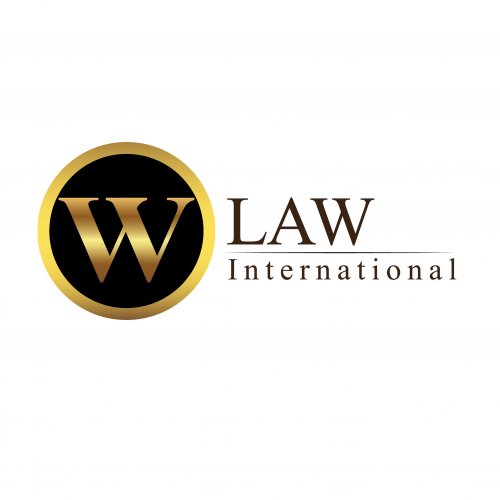Best Financial Services Regulation Lawyers in Phuket
Share your needs with us, get contacted by law firms.
Free. Takes 2 min.
List of the best lawyers in Phuket, Thailand
Legal guides written by SIAM LEGAL INTERNATIONAL:
- Defamation Laws in Thailand: Criminal Charges and Civil Suits
- The State of Thailand’s Long-Term Resident (LTR) Visa Program in 2025
- The Penalties Of Not Filing Your Income Tax Return As A Foreigner In Thailand
Thailand Financial Services Regulation Legal Articles
Browse our 1 legal article about Financial Services Regulation in Thailand written by expert lawyers.
- Thai Legal Framework for Cryptocurrencies
- Technology, investment, and money have all been fundamentally altered by cryptocurrencies. Countries all throughout the globe struggle to design legal regimes that safeguard consumers while fostering innovation as these digital assets develop. Thailand distinguishes itself in this sense as it has one of the most thorough regulatory frameworks regarding cryptocurrencies... Read more →
About Financial Services Regulation Law in Phuket, Thailand
The financial services industry in Phuket, Thailand, is primarily regulated by a framework of laws designed to ensure stability, transparency, and integrity within the financial marketplace. These regulations are in alignment with national standards set by the Thai government and monitored by bodies such as the Bank of Thailand and the Securities and Exchange Commission of Thailand. The regulations cover a broad spectrum, including banking services, insurance, investment management, and financial advisory services, with the aim to protect consumers, promote fair competition, and mitigate financial risks.
Why You May Need a Lawyer
Involving a lawyer in financial services regulation matters can be crucial for a variety of reasons. People or businesses might seek legal help if they are setting up a new financial service, facing compliance issues, or dealing with disputes over financial transactions. Lawyers specializing in this field can provide expert assistance with licensing, ensure compliance with both local and international regulations, help navigate complex financial products, and represent clients in negotiations or litigations. Legal advice is often necessary to mitigate risks and protect the interests of companies and individuals involved in financial services.
Local Laws Overview
In Phuket, financial services regulation law is heavily influenced by national Thai legislations. Key aspects include requirements for financial institutions to obtain the necessary licenses and permits, adhere to strict financial reporting and auditing standards, and comply with anti-money laundering (AML) and counter-terrorism financing (CFT) measures. Consumer protection laws are also significant, demanding transparency and fairness in financial advertisements and transactions. Changes in international financial regulations, such as those governing cross-border transactions, must also be adhered to by local financial service providers.
Frequently Asked Questions
What is the first step to start a financial service business in Phuket?
The first step is to secure the correct licenses and permits from the relevant authorities, including the Bank of Thailand or the Ministry of Finance, depending on the nature of the business.
Are there specific regulations for foreign investors in Phuket's financial sector?
Yes, foreign investors must comply with additional regulations under the Foreign Business Act, which may limit foreign shareholding in certain financial services.
What are anti-money laundering (AML) requirements in Thailand?
Financial institutions must have robust systems in place for customer due diligence, transaction monitoring, and reporting suspicious activities in accordance with the Anti-Money Laundering Act.
Who oversees the enforcement of financial regulations in Thailand?
The enforcement is primarily overseen by the Bank of Thailand and the Securities and Exchange Commission of Thailand, as well as other relevant governmental bodies.
Is digital banking regulated in Phuket?
Yes, digital banking services must comply with financial regulation standards similar to traditional banks, including data security and consumer protection regulations.
What should I do if I face a financial dispute in Phuket?
It is advisable to seek legal counsel to evaluate your case and represent you, especially if the dispute involves significant amounts or complex financial instruments.
Can financial service providers from other countries operate in Phuket?
Foreign financial service providers must adhere to Thai regulations and often require a local partnership or subsidiary to operate in Phuket.
What are the consequences of non-compliance with financial regulations?
Consequences can include fines, revocation of licenses, legal action, and reputational damage, both locally and internationally.
How often do financial regulations change in Thailand?
Financial regulations are periodically updated to adapt to new financial products, technologies, or international regulatory requirements. Keeping informed of changes is crucial for compliance.
Can financial advisors work independently in Phuket?
Financial advisors must be registered and obtain the necessary certifications to ensure compliance with relevant Thai regulations before practicing.
Additional Resources
For those seeking further information or help, the following resources can be beneficial: the Bank of Thailand, the Securities and Exchange Commission of Thailand, and the Ministry of Finance. Professional organizations like the Thai Bankers' Association and legal advisory firms in Phuket can also offer guidance and assistance.
Next Steps
If you require legal assistance in financial services regulation, consider consulting with a specialized lawyer. Begin by researching legal professionals in Phuket with proven experience in financial services law. It can be beneficial to prepare a list of questions or concerns and any relevant documentation before your meeting to ensure a productive discussion. Once you have found suitable legal representation, work closely with your lawyer to address your legal needs effectively and comply with all regulatory requirements.
Lawzana helps you find the best lawyers and law firms in Phuket through a curated and pre-screened list of qualified legal professionals. Our platform offers rankings and detailed profiles of attorneys and law firms, allowing you to compare based on practice areas, including Financial Services Regulation, experience, and client feedback.
Each profile includes a description of the firm's areas of practice, client reviews, team members and partners, year of establishment, spoken languages, office locations, contact information, social media presence, and any published articles or resources. Most firms on our platform speak English and are experienced in both local and international legal matters.
Get a quote from top-rated law firms in Phuket, Thailand — quickly, securely, and without unnecessary hassle.
Disclaimer:
The information provided on this page is for general informational purposes only and does not constitute legal advice. While we strive to ensure the accuracy and relevance of the content, legal information may change over time, and interpretations of the law can vary. You should always consult with a qualified legal professional for advice specific to your situation.
We disclaim all liability for actions taken or not taken based on the content of this page. If you believe any information is incorrect or outdated, please contact us, and we will review and update it where appropriate.















